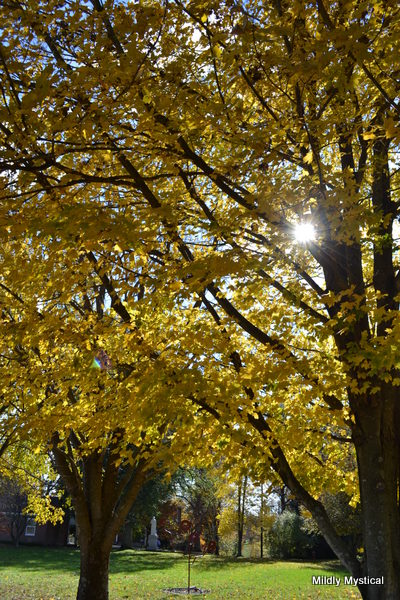At the site of a friend’s silent retreat this fall, a ginkgo tree happened to shed its leaves on the same weekend. She was drawn to the gentle drama unfolding over the course of a day, the air so thick with fluttering yellow fans they sounded like rain as they pooled on the ground. Had the retreat not offered the kind of presence that happens through silence, she might have seen them drop but missed the sound, the music, of falling leaves.
It’s a mystery how life can hold such beauty at the same time it holds so much pain. The world is hurting. Each of us is injured from violence inflicted far and near. Wrenching scenes repeat on our screens as we attempt to grapple with unfolding events and respond to the world we live in. As the news cycle continues, fear and hate seem quickest to find their voice, filling the world with noise and making it harder to listen for wisdom.
Yet reminders of wisdom rise up like seedlings through concrete. Teachings on compassion become part of the conversation as people share those scriptures that serve as compass points for their lives. Discussions of the values that shape the identity of our nation are held in earnest. People are sharing and responding to heartbreak in a way that compels action for the sake of justice.
I am grateful for those giving voice to generous and searching hearts. I am grateful for models of resolve shaped by wisdom, strength, and love. They remind us of what is good in this world, and help show us the way forward.
Into this milieu, with perfect timing, comes Thanksgiving.
It is literally good for the heart to be thankful. A daily practice of naming two or three things for which we are thankful actually improves our physical health—this report on those findings is not only fascinating, but encouraging. In a previous post I talked about making space in our lives, giving ourselves breathing room by easing up on our expectations and allowing something new. Gratitude helps to do that.
In remembering to be thankful we make space for something more than the worries that beset us. We open ourselves to other possibilities, and perhaps to seeing new ways to meet the concerns and challenges of our world.
Centuries ago the Sufi poet Rumi wrote:
But listen to me. For one moment
quit being sad. Hear blessings
dropping their blossoms
around you.
May this Thanksgiving be an invitation to wisdom. May we listen from the quiet center of the heart, and rest for a moment in gratitude.


Your Thanksgiving thoughts remind me of a poem by Gregory Orr:
Yes
Burden and blessing–
two blossoms
on the same branch.
To be so lost
in this radiant wilderness.
Thanks for all your posts throughout the year,
Sharon
I’m so glad to “meet” this poem, Sharon. It’s beautiful. One more thing to be thankful for today. Happy Thanksgiving!